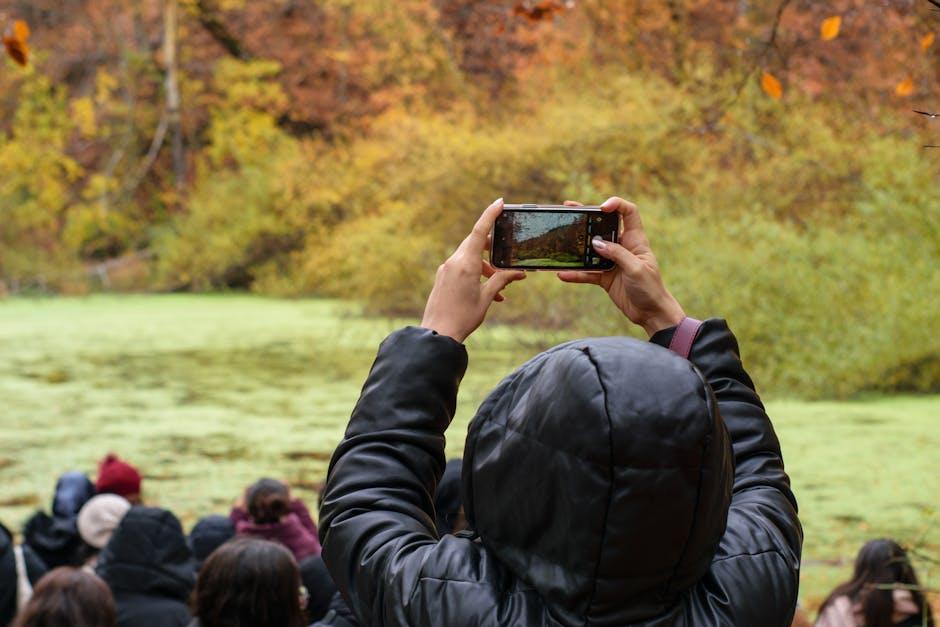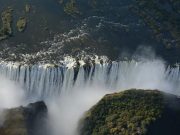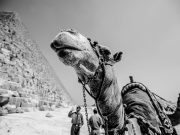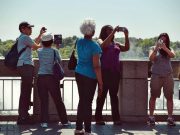In an age where wanderlust is fueled by the tap of a finger and the swipe of a screen, the world has become a smaller place, and its wonders more accessible than ever before. Yet, as technology opens doors to the globe’s most breathtaking locales, it simultaneously presents a paradox: the charm of these destinations is being eroded by the very crowds drawn in by their digital allure. The bustling streets of Paris, the tranquil beaches of Bali, and the ancient ruins of Machu Picchu are now inundated with selfie sticks and smartphones, creating a modern-day dilemma that blurs the line between virtual admiration and physical presence. This article delves into the intricate dance between technology and tourism, exploring how innovations meant to enhance our travel experiences are inadvertently contributing to the overcrowding of the world’s most cherished attractions. Join us as we navigate this complex landscape, examining the dual role of technology as both a gateway and a gatecrasher in the realm of global tourism.
Digital Footprints: How Social Media Fuels Tourist Swarms
In an age where our every move is chronicled online, social media has emerged as a powerful catalyst in the way we choose our travel destinations. With platforms like Instagram, Facebook, and TikTok offering a constant stream of visually captivating content, certain locales experience a surge in popularity almost overnight. The allure of capturing the perfect snapshot has transformed once-serene landscapes into bustling epicenters of tourism. The phenomenon of ‘going viral’ on social media can lead to an unprecedented influx of visitors, eager to replicate the experiences they see on their screens.
- Geotagging: Many travelers use geotags, inadvertently advertising precise locations that become hot spots for subsequent tourists.
- Influencer Culture: Influencers often promote specific destinations, leading to a cascade of followers eager to visit the same sites.
- FOMO (Fear of Missing Out): The psychological pressure to experience what others are enjoying can drive masses to popularized spots.
As a result, the digital age has not only democratized travel information but also accelerated the rate at which destinations can become overcrowded. While the economic benefits for local communities are undeniable, the environmental and social impacts necessitate a balanced approach to sustainable tourism.
Virtual Queues and Augmented Reality: Tech Solutions to Manage Crowds
In today’s digital age, innovative solutions such as virtual queues and augmented reality (AR) are transforming how tourist attractions manage crowds. Virtual queues allow visitors to reserve their spot in line without physically standing there, reducing congestion and enhancing the overall experience. This system not only minimizes wait times but also provides tourists with the freedom to explore other areas, thereby distributing the crowd more evenly across the site. By integrating virtual queues with mobile apps, attractions can offer real-time updates and notifications, ensuring a seamless visit.
Augmented reality offers a unique approach to crowd management by enriching the visitor experience with interactive and engaging content. AR can transform ordinary spaces into extraordinary visual narratives, encouraging tourists to explore less crowded areas. Attractions can use AR to guide visitors through alternative paths, highlight hidden gems, and offer personalized tours, all while maintaining safe and manageable crowd levels. Some creative implementations of AR in tourism include:
- Interactive maps that guide visitors through less congested routes
- Historical recreations and storytelling experiences that captivate audiences
- Gamified experiences that reward exploration of quieter sections
By leveraging these technologies, tourist attractions can not only enhance visitor satisfaction but also ensure sustainable and efficient crowd management.

Balancing Act: Technologys Double-Edged Sword in Tourism
The advent of technology in tourism has ushered in unprecedented access to once-remote destinations, transforming them into bustling hotspots. While the convenience of online bookings and virtual tours has democratized travel, it also inadvertently contributes to the overcrowding of popular sites. The ease of sharing breathtaking images on social media platforms like Instagram and Facebook often results in these locations becoming viral, leading to an influx of tourists eager to recreate those picture-perfect moments. This phenomenon, sometimes referred to as the “Instagram effect,” has led to significant challenges in managing tourist numbers at many renowned attractions.
Moreover, the rise of travel apps and platforms that promise the ‘ultimate local experience’ has shifted tourist patterns, drawing crowds to places previously off the beaten path. While this can be beneficial for local economies, it often comes at the expense of sustainability and cultural preservation. Considerations for balancing technology’s role in tourism include:
- Implementing digital visitor caps to manage the number of tourists in real-time.
- Promoting lesser-known destinations to distribute tourist traffic more evenly.
- Utilizing AI and big data to predict peak tourist seasons and plan accordingly.
As technology continues to evolve, its integration into tourism management strategies will be crucial in ensuring that popular destinations can be enjoyed by future generations without compromising their integrity.

Innovative Strategies: Leveraging Tech for Sustainable Visitor Flow
In the quest to balance the allure of tourist destinations with the need for preservation, technology emerges as a pivotal ally. By harnessing cutting-edge tools, destinations can effectively manage visitor flow, ensuring a sustainable and enjoyable experience for all. Smart technology is at the forefront, utilizing data analytics to predict peak visiting times and suggest optimal visiting periods. This not only disperses crowds but also enhances the overall visitor experience.
- Real-time tracking systems provide insights into visitor numbers, allowing for dynamic adjustments to entry points and guided tours.
- Augmented Reality (AR) apps offer virtual tours, reducing physical footfall while still providing a rich, immersive experience.
- Digital ticketing systems with timed entry slots help regulate the flow of visitors, minimizing congestion.
- AI-driven chatbots provide instant information, reducing the need for physical info points that often become crowded.
These technological strategies are not just about managing crowds but are part of a broader commitment to sustainability. By leveraging technology, tourist attractions can maintain their charm and accessibility while protecting their natural and cultural heritage.
Closing Remarks
As we navigate the intricate dance between technology and tourism, it becomes increasingly clear that the role of innovation in managing overcrowding at tourist attractions is both a challenge and an opportunity. While digital tools offer promising solutions to disperse crowds and enhance visitor experiences, they also require careful consideration and responsible implementation. As travelers and industry leaders alike, we stand at a crossroads where our choices will shape the future of global tourism. By embracing technology with foresight and balance, we can pave the way for sustainable exploration that respects both our planet and the rich tapestry of cultures it holds. Let us embark on this journey with open minds and a shared commitment to preserving the wonders of the world for generations to come.


































